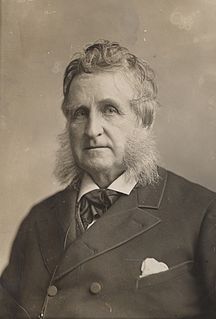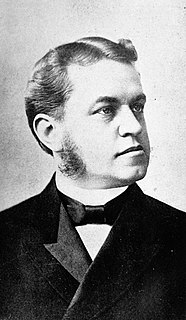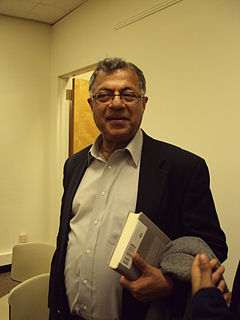A Quote by Donald Grant Mitchell
The Spaniards have a saying that there is no man whom Fortune does not visit at least once in his life.
Related Quotes
At least once every human should have to run for his life, to teach him that milk does not come from supermarkets, that safety does not come from policemen, that 'news' is not something that happens to other people. He might learn how his ancestors lived and that he himself is no different--in the crunch his life depends on his agility, alertness, and personal resourcefulness.
The Poor Man whom everyone speaks of, the Poor Man whom everyone pities, one of the repulsive Poor from whom charitable souls keep their distance, he has still said nothing. Or, rather, he has spoken through the voice of Victor Hugo, Zola, Richepin. At least, they said so. And these shameful impostures fed their authors. Cruel irony, the Poor Man tormented with hunger feeds those who plead his case.
... when the Spaniards persecuted heretics they may have been crude, but they were not being unreasonable or unpractical. They were at least wiser than the people of to-day who pretend that it does not matter what a man believes, as who should say that the flavour and digestibility of a pudding will have nothing to do with its ingredients.
All the delights of sense, or heart, or intellect, with which you could once have tempted him, even the delights of virtue itself, now seem to him in comparison but as the half nauseous attractions of a raddled harlot would seem to a man who hears that his true beloved whom he has loved all his life and whom he had believed to be dead is alive and even now at his door.
Every man should write a brief history of his life: his parentage, his birth, his religion, when he was baptized and by whom, when ordained, what to, and by whom-give a brief sketch of all his missions and of all his official acts and the dealings of God with him. Then if he were to die and the historians wished to publish his history, they would have something to go by.
It was the saying of a great man, that if we could trace our descents, we should find all slaves to come from princes, and all princes from slaves; and fortune has turned all things topsy-turvy in a long series of revolutions; beside, for a man to spend his life in pursuit of a title, that serves only when he dies to furnish out an epitaph, is below a wise man's business.
Ideas are dangerous, but the man to whom they are least dangerous is the man of ideas. He is acquainted with ideas, and moves among them like a lion-tamer. Ideas are dangerous, but the man to whom they are most dangerous is the man of no ideas. The man of no ideas will find the first idea fly to his head like wine to the head of a teetotaller.







































